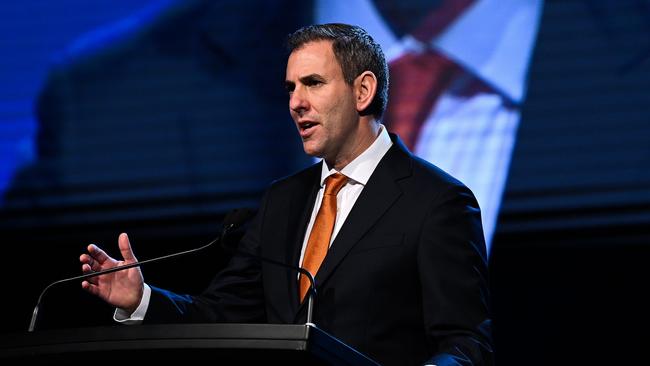
The federal Treasurer believes in institutional policy and cultural change. This is his real connection with the Hawke-Keating era, not the actual policies as such, a conclusion many people fail to comprehend. In recent years Chalmers has been developing a new synthesis between Labor faiths and a recast economic reform agenda that can work. Now this is assuming meaningful action.
Interviewed by this column, Chalmers says his “defining motivation” arises from recognition that “the economic challenges have evolved, the productivity challenge has evolved, but the Productivity Commission is still essentially the version that was introduced a quarter of a century ago”. That was a different age and a different world. Chalmers wants a Productivity Commission that helps Labor deliver its goals – rising living standards and rising real wages. Without that, the Albanese government fails.
Chalmers cannot legislate sustainable higher wages. That doesn’t work because about 80 per cent of rising living standards in Australia come from better productivity – get that wrong and the public is unhappy, irritable and antagonistic. And that’s what it has been for a decade.
Australia has two economic challenges – high inflation and poor productivity. The inflation challenge is more recent, the productivity challenge is longer lasting. In his focus on renewing the two institutions involved – the Reserve Bank and the Productivity Commission – Chalmers has devoted more time to the commission because its brief is far wider and less specific than that of the bank. Productivity is a more elusive concept than inflation.
Chalmers wants a new productivity agenda spearheaded around three issues – the energy transition to net zero, the technological transformation, and investment in human capital and skilling. He wants “a more modern productivity agenda” alert to the expanding care economy and our changing industrial base. That means a Productivity Commission “more relevant” and better attuned to Labor’s thinking.
Calls for the abolition of the Productivity Commission are brainless. Such people understand nothing of our economic history, of the sources of Australian prosperity and how economic ideas are developed and turned into national interest policy. But Labor has been disillusioned with the Productivity Commission for years and the Albanese government is plain fed up. At heart this is a conflict over ideas and interests.
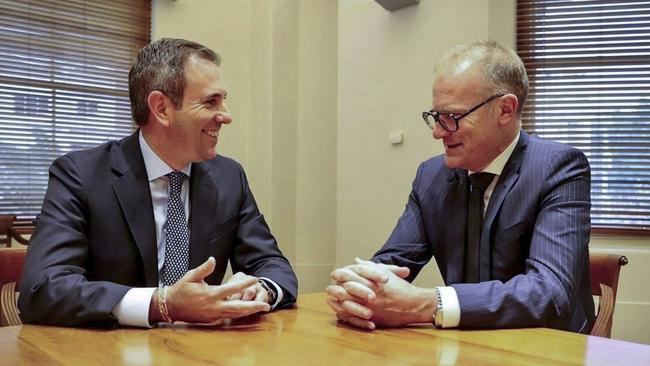
The origins of the Productivity Commission lie with the old Tariff Board and the seminal struggle between protection and free trade, a battle won during the Hawke-Keating era and accepted by subsequent governments. Labor accepts the open economy and the discipline this imposes. But it cannot tolerate the Productivity Commission’s economic purist, pro-market philosophy. Above all, it repudiates the commission’s long advocacy for a more deregulated IR system, with Chalmers famously saying he wouldn’t accept gains from “scorched-earth industrial relations”.
This tension got acute last week when the trade and assistance review by the Productivity Commission warned that industry policy and trade protectionism were back on the global march after 60 years of falling trade barriers. It identified two of the prime causes – strategic competition spilling into economic rivalry (think US-China) and public incentives for clean energy (witness the Biden administration’s massive incentives for renewables).
In statements that infuriated or dismayed – take your pick – Labor cabinet ministers, the Productivity Commission took aim at Labor’s cherished agendas, the critical minerals strategy, local battery production plans, the Hydrogen Headstart program and the National Reconstruction Fund, warning against “behind the border” tax and spending incentives to boost industries at the risk of living standards.
A new era of government intervention has irresistible momentum, globally and locally. This will be difficult for Chalmers to navigate, not least with his colleagues. It means getting the dividing line right between justified and counter-productive intervention across energy, the care economy, manufacturing, resources and workplace relations. The reality is that Australia’s great reform age is long since over. It’s finished and it’s not coming back. That’s a source of regret. It offered the finest and most ambitious vision of Australia since Federation. The reform age that began with the Hawke-Keating era in 1983 and faded away about the time of John Howard’s final term – best symbolised by the promotion and destruction of Work Choices – has never been replaced by an adequate polity.
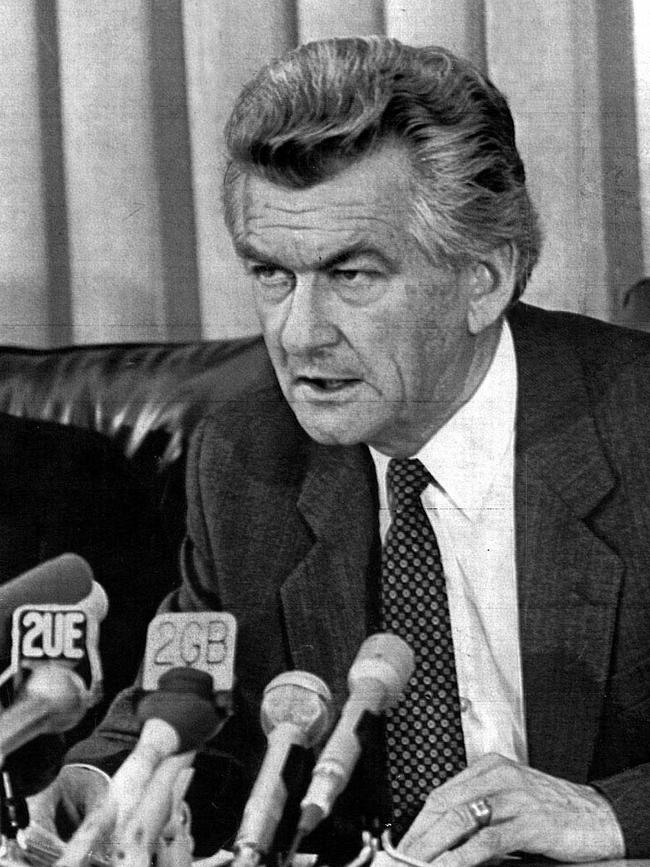
Earlier this year in its five-yearly inquiry the Productivity Commission offered a devastating assessment of how grim things had got: “Over the decade to 2020 average annual labour productivity growth in Australia was the slowest in 60 years, falling to just 1.1 per cent compared with 1.8 per cent over the 60 years to 2019-20. This seemingly small difference – just 0.7 percentage points – has an outsized effect on the long-term future prosperity of Australians. It means that the economic pie, and accordingly the welfare of Australians, will be smaller than it might otherwise be. For example, the time it takes for economic output per person to double increases by 25 years – approximately the length of a generation – from about 39 to 64 years.”
That’s the challenge facing Chalmers and Barrett. “The things I want to keep about the Productivity Commission are its independence and its focus on productivity,” Chalmers said. “The things I want to strengthen are its ability to shift and enhance our thinking on the big policy challenges in ways that can be used by governments.”
Given the scale of economic change, Chalmers said his obligation was “to refresh, renew and refocus” the commission. “That’s what I’m trying to do,” he said.
The chasm between the Productivity Commission and the political class has become too wide. That serves the interest of neither party. The previous Coalition government treated the commission with marginal utility.
Indeed, Chalmers said he realised something had to be done when, under the Coalition, the previous five-yearly Productivity Commission review was released and “then nobody spoke about it again”. He said there had been flashes of the commission’s influence – nominating the NDIS and paid parental leave as examples – but they were too rare. Too often, he said, the Productivity Commission “has been chasing its tail in lots of ways for the best part of a quarter of a century”.
This signals the uphill task facing Barrett. For the record, he is qualified for the post – experience in federal and state governments, Australian ambassador to the OECD and chief of staff to Wayne Swan as treasurer where he worked closely with Chalmers.
Chalmers spoke to many people about the Productivity Commission before he got Treasury chief Steven Kennedy to undertake a review that will soon be completed. Chalmers felt getting Barrett on board before the review was finalised made sense.
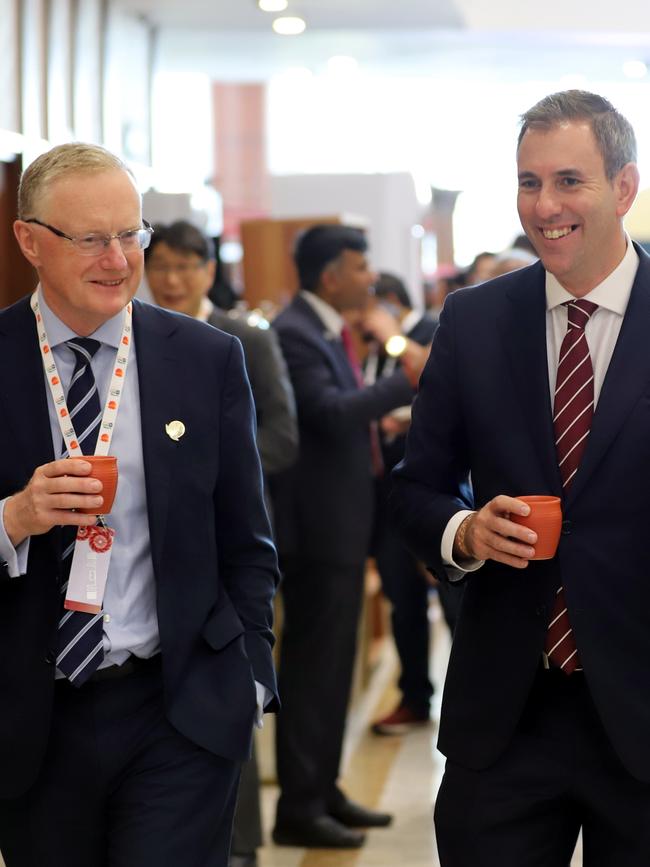
Chalmers admits productivity policy is “contested”. That is an understatement. One of the failures of political reporting over the past generation has been to treat Liberal-Labor disputes as a series of one-off policy differences when the real dispute was a sustained ideological conflict over the best means to promote economic growth and living standards – that is, over productivity. It continues to this day.
This conflict has been pivotal in destroying prospects for reform, throttling policies in the parliament, taking vital policies off the agenda – witness tax reform and carbon pricing – empowering negative politics over positive, retarding productivity and weakening average per capita income. Australia has been diminished as a consequence.
Changing institutions is never easy. The Productivity Commission has a deep sense of intellectual identity. The dilemma facing Chalmers and Barrett – as they would know – is that political conflict no matter how intense cannot abolish the laws of economics. Changes to Australia’s productivity agenda work only if they deliver higher productivity. Chalmers’ aspiration is to find that higher productivity in new sources of economic thinking. That is perhaps the deepest task facing the Albanese government, the Treasurer and the new chairman of the Productivity Commission.


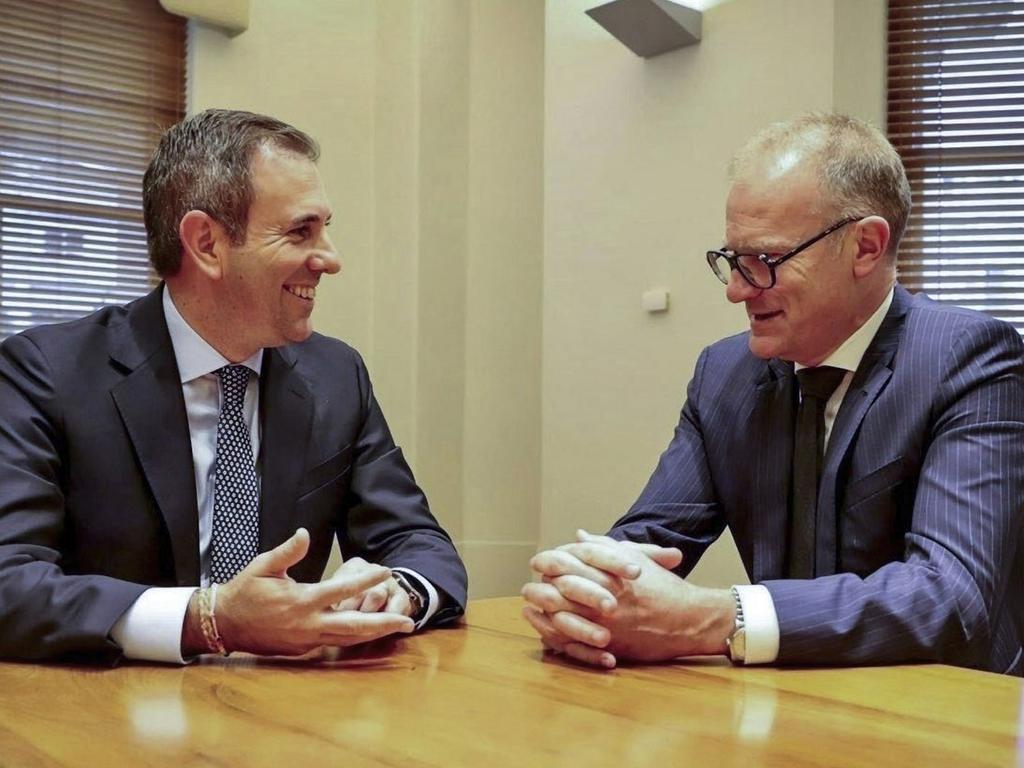

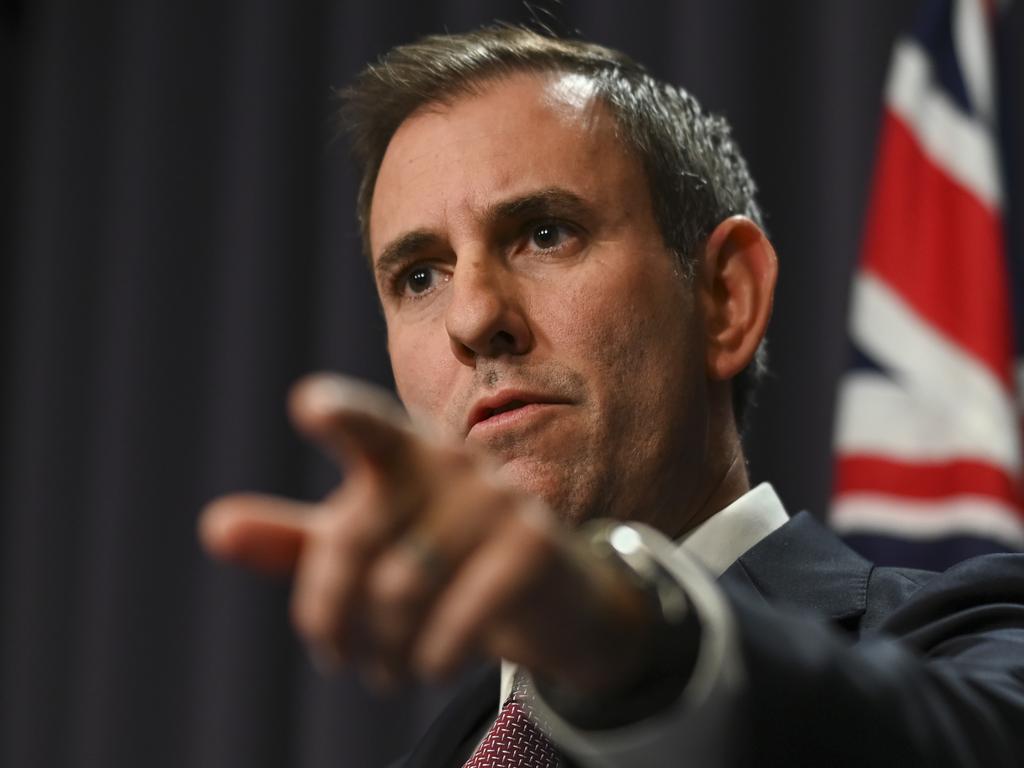


The great productivity evolution is coming. The appointment of Chris Barrett as the new chairman of the Productivity Commission is a turning point for that institution and for productivity policy in Australia – and the stakes are high for both Jim Chalmers and Barrett.